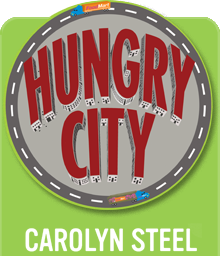Life under the Volcano
At first, I thought it was a hoax. A news flash on the BBC announcing that all UK flights were cancelled seemed like science fiction. Five days later, of course, the entire world knows all about Iceland’s Eyjafjallajökull glacier and the ash cloud that continues to block air travel over much of Europe.
The human and economic disruption has already been considerable. Millions of people have been stranded, millions of pounds of business lost, and hundreds of tonnes of perishable foods destined for Europe – such the famous Kenyan beans – destroyed. The misery and loss are real – but how much worse could it get?
Yesterday, Iceland’s president Olafur Grimsson warned that the current disruption was ‘just a small rehearsal’ for what could come. Nearby Katla, a much larger volcano close to the current eruption, is apparently overdue. It generally erupts every 40-80 years, and last did so in 1918. When Katla blows (and it is a matter of when, not if) Europe could be shrouded in ash for months. What then?
The answer could be economic and human catastrophe on a scale of which we can barely conceive. In 1783, another Icelandic volcano, Laki, erupted with such force that its poisonous fumes killed half of Iceland’s livestock, a quarter of its population, and many further deaths throughout Europe. The ash cloud, which remained for many months, altered weather patterns across the globe, creating several years of extreme weather that led to failed harvests and famine as far afield as Japan, and most famously in France (Laki is the often uncredited factor leading to the French Revolution).
Should such an eruption occur today, the availability of melon in April would be the least of our worries. The volcano is a wake-up call: a glimpse of what life might be like after Peak Oil – a reminder that the systems upon which we now rely – our just-in-time, computer-run, energy dependent, economically ‘efficient’ global networks – are as brittle as the philosophy that created them. Mother Nature is reminding us who’s boss. We should take this opportunity to listen to her.











April 25th, 2010 at 1:10 pm
Although I purchased my copy of Hungry City over a year ago I am just getting around to reading it properly. Other titles had demanded my attention and received priority. Bill Brysons”A Short History of Nearly Everything’, Ivan Crowes’ ‘The Quest For Food’, and Rick Potts’ ‘Humanitys’ Descent’ are amongst titles that had taken precedent.
My starting point was curiosity of the causality for obesity, diabetes, and chronic disease in general, and it began with renewed interest and direction on 19th Dec 2008 which coincidentally was timely with media coverage over the then ensuing banking crisis.
I am absolutely with the declared premises of ‘Hungry City’ that the human relationship with food defines so much about modern life that escapes general notice.
My curiosity has become a study with an investment in an embryonic thesis that the evolving human relationship with food completes a link between classical ‘Darwinian’ thoughts on evolution and societal, behavioural, and economic evolution of modern times. While, with ones’ nose pressed to the wheel of modern life, it is easy to overlook that the nemesis of familiar urban existence lies with possibilities afforded by agronomic surplus. Monetary economies are really surrogate ecologies – actually the failing is exactly that; that human nature determines that monetary economies are imperfect ecological surrogates.
Potts and Bryson both underscore that life, including human industrial and post-industrial life, is a thin and precarious veneer upon a planet that is evolving in its own right at a geophysical, climatic interplanetary, perhaps even universal level.
Modern economic activity deludes many of us about our real precarious relationship with the Earths’ ecology. I am in agreement that the ash cloud from Icelands’ Eyjafjallajokull volcano can teach us a lot. Differences of opinion over the flight ban illuminate the delusion as people reveal their preference for ecological preservation or economic liberalism. But Bransons’ stance, here reported in the Observer reveals even he has become confused about the economic merit and purpose of enterprising behaviour and corporate agenda. Comments are interesting. Living in modest proximity to a major northern airport I am grateful for the peace. No doubt planet Earth is in some way grateful too. Yours is a superbly observed blog on the ash cloud. Thanks for the steer on the French Revolution. I thought accounts might marry with my curiosities on inequality but I had not appreciated the possible agrinomic links to an Icelandic volcano.